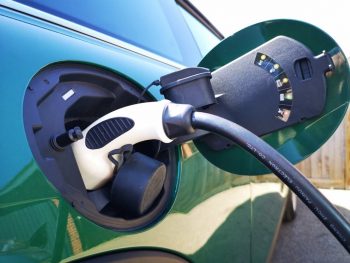DfT has spent 15 times more on private than public EV chargers
Public money spent on installing off-street residential electric vehicle chargers is more than 15 times what has been spent on public on-street residential chargers.

The research also reveals that public money has led to over 100 times more private than public chargers being installed to date
The analysis of Department for Transport figures conducted by the recently launched FairCharge campaign shows that a total grant value of £104.5m had been spent on the Electric Vehicle Homecharge Scheme (EVHS) from the scheme’s inception in September 2014 up to the end of 2021.
In comparison, the DfT spent £6.8m of grant funding on the On-street Residential Charging Scheme (ORCS) since the scheme was established in 2017. The total spend on the EVHS is fifteen (15.37) times more than the ORCS.
The research also reveals that public money has led to over 100 times more private than public chargers being installed to date.
The grant for the EVHS funded the installation of 236,697 domestic charging devices, whereas only 2,038 public charging devices had been installed via ORCS since the scheme was established.
This is despite the fact that just over a third of households in England lack access to off-street parking.
While the EVHS was changed from the start of April to no longer accept applications from homeowners living in single-unit properties, FairCharge said the revelations painted a clear picture about the relative lack of attention paid to date to the network of public chargers.
It added that it raised yet more questions about whether the Government was doing enough to support the transition to electric vehicles for poorer households.
Well-known automotive journalist Quentin Willson, who is leading the FairCharge campaign, commented: “Of course, the EVHS has been great in that is has led so many to make the switch to EVs – but it can’t be right that there is such a big a gap between public money spent supporting off-street and on-street charging.”
He continued that figures like this add to the feeling that some have that EVs are the preserve of the wealthy.
“If the transition to net zero is to be successful then it must be fair. When it comes to EVs, it just isn’t fair that those who have access to driveways or garages have so much more government help to support their charging needs than those – on average much poorer – people who do not. Our FairCharge campaign is aimed at preventing exactly this sort of injustice.”
Launched in February, the campaign is intended to speed up the switch to electric cars by removing many of the barriers currently facing drivers. Its initial focus has been on tackling the current “illogical” VAT policy where VAT on domestic electricity is charged at 5% whereas those using public charge points have to pay 20% VAT – since then, the Government has said it has no current plans to review the rate of VAT applied to EV charging.
Alongside charging, FairCharge is also working to make EVs more accessible and has also started a petition on Change.org calling on the Government to take action on EV incentives and to put in place a national charging network so that drivers can be confident of switching to an electric car.












